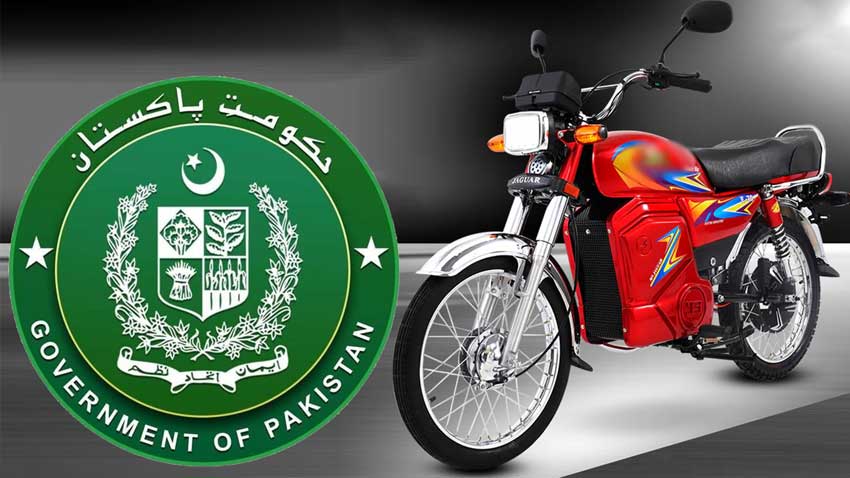
According to official sources, the detailed subsidy and installment plan for these e-bikes is in its final stages. Prime Minister Shahbaz Sharif is expected to officially launch the scheme on August 14.
The State Bank of Pakistan and the Banking Association are jointly finalizing the structure of the scheme. These will be locally assembled electric bikes, powered entirely by rechargeable batteries.
Under the plan, the government will provide a flat subsidy of Rs50,000 for each electric bike and rickshaw. Applicants must be between 18 and 65 years old to qualify. The expected price of each e-bike is around Rs250,000. After subsidy, the remaining amount will be paid in affordable monthly installments.
In a broader policy shift, the government aims to convert 30% of all vehicles in the country to electric by 2030. By 2040, this goal expands to an ambitious 90% electric vehicle adoption rate across Pakistan.
So far, 17 local companies have already obtained licenses to manufacture electric bikes, signaling strong industrial support for the upcoming shift.
To make this vision a reality, the government plans to allocate Rs100 billion in subsidies over the next five years. For the current fiscal year alone, Rs9 billion has been earmarked, with a steady increase in allocations for future years.
Read more: Convert your bike to electric and get Rs.100,000
Specifically, the government will provide Rs19 billion in 2027, over Rs24 billion in 2028, and more than Rs26 billion in 2029. This phased and integrated strategy is designed to rapidly grow the electric vehicle industry, curb environmental pollution, and build the foundation of a sustainable economy.
This scheme could revolutionize urban mobility in Pakistan. By reducing fuel imports and encouraging the local EV industry, the plan aligns with both environmental goals and economic resilience. The installment option makes e-bikes accessible for youth and working-class citizens, while the long-term subsidy model provides stability for manufacturers. If implemented efficiently, it could reshape the country’s transportation future.




